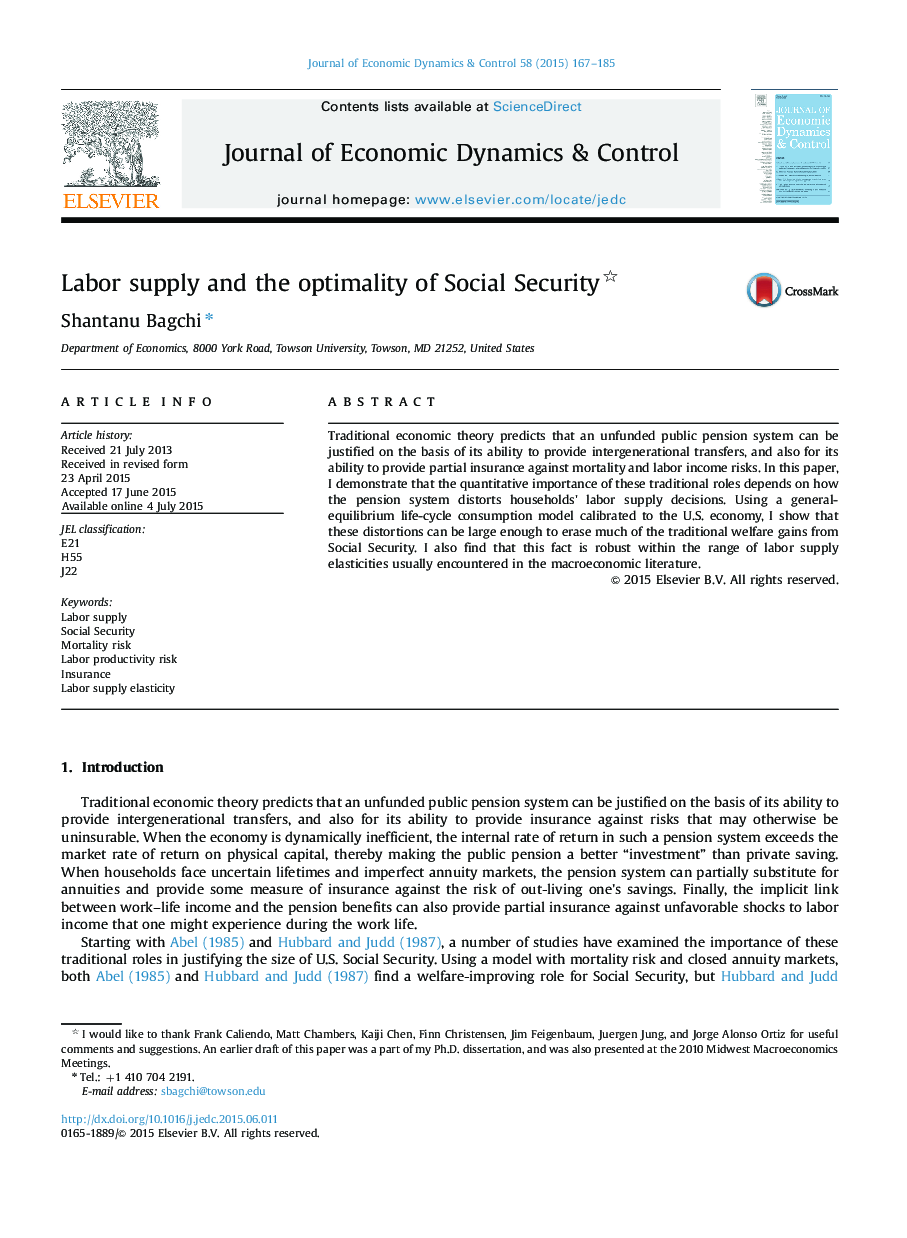| Article ID | Journal | Published Year | Pages | File Type |
|---|---|---|---|---|
| 5098283 | Journal of Economic Dynamics and Control | 2015 | 19 Pages |
Abstract
Traditional economic theory predicts that an unfunded public pension system can be justified on the basis of its ability to provide intergenerational transfers, and also for its ability to provide partial insurance against mortality and labor income risks. In this paper, I demonstrate that the quantitative importance of these traditional roles depends on how the pension system distorts households' labor supply decisions. Using a general-equilibrium life-cycle consumption model calibrated to the U.S. economy, I show that these distortions can be large enough to erase much of the traditional welfare gains from Social Security. I also find that this fact is robust within the range of labor supply elasticities usually encountered in the macroeconomic literature.
Related Topics
Physical Sciences and Engineering
Mathematics
Control and Optimization
Authors
Shantanu Bagchi,
